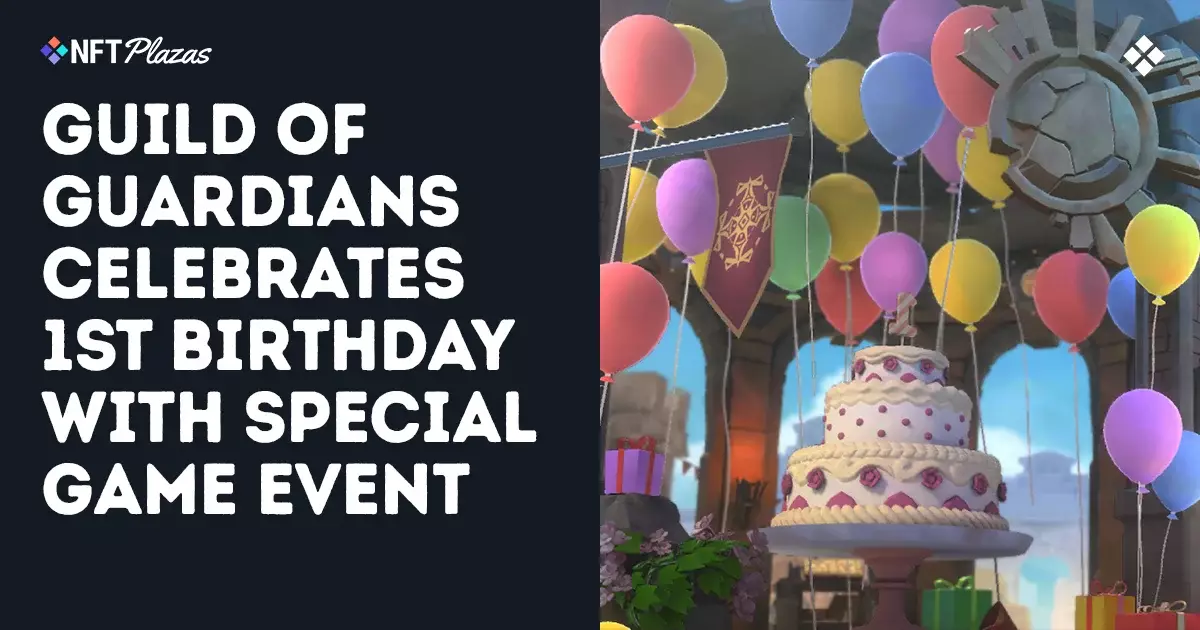In the rapidly evolving gaming landscape, where excitement and innovation often collide, the NFT gaming sector has garnered attention, both positive and negative. While games like Guild of Guardians celebrate milestones with grand anniversary events, there lies beneath the surface a multitude of issues that cannot be ignored. This article unfolds the not-so-glamorous truths about the NFT gaming industry, shedding light on the challenges many players and developers face in this evolving market.
Exclusive Activities: Who Truly Benefits?
Guild of Guardians recently announced its anniversary events, brimming with enticing offers for players who have completed specific milestones. But what is often marketed as “exclusive” becomes exclusive only in the sense that it confines participation to those who can keep pace with a game continually evolving in complexity and demand. While the allure of rare skins and powerful characters invites participation, it effectively marginalizes casual gamers who cannot invest the same amount of time or financial resources. Players shouldn’t have to feel pressured to pour hours into a game or cash into NFTs to truly experience all it has to offer.
The Illusion of Ownership
NFTs come with a promise of ownership that woefully lacks substance in practice. In theory, players of Guild of Guardians can trade their collectibles, be it avatars or pets, enhancing their gaming experience. However, the reality is starkly different. The artifacts players acquire often become fetters, as the volatility in their values can render the supposed ownership meaningless. One minute, a Guardian could be worth a small fortune; the next, it could be virtually worthless. Rather than enabling true ownership, NFTs often feel more like gambling tokens in a precarious casino.
Gameplay: Emergent Complexities or Exploitative Design?
The core gameplay loop of Guild of Guardians showcases classic RPG elements, with real-time battles, dungeon raids, and character roles seamlessly blending excitement into player engagement. But as players advance, they discover that the complexity can often tip into exploitative territory. The necessity for constant grinding to remain competitive is a burden many players carry alone. Those who can’t invest the time, or those who simply wish to enjoy the game without the constant grind, watch as their progress stalls, relegating them to the sidelines of an otherwise thrilling experience.
Further complicating this are the seasonal challenges that promise evolving gameplay. These challenges may keep veteran players on their toes, but they can act as a double-edged sword. The more seasoned players accumulate rewards and with them, power, leaving newer entrants struggling to catch up, bogged down by a steep learning curve that feels intentionally crafted to benefit long-term players at the expense of new entrants.
PvP: A Competitive Arena or a Pay-to-Win Scheme?
The Arena mode of Guild of Guardians aims to pit players against each other in thrilling encounters, but the layer of competition quickly morphs into a divisive experience. The introduction of founder Guardians—those who were early adopters and can wield significant advantages—creates a chasm that discourages newcomers and casual participants. The notion of pay-to-win, pervasive in so many free-to-play models, rears its ugly head once again. The promise of traditionally balanced combat is shattered as players are left realizing that competition in NFT gaming often correlates more with their bank account than their gaming acumen.
Marketplace: The Gold Rush Dilemma
The NFT marketplace is heralded for its potential to create a vibrant ecosystem for trading and ownership. However, this “gold rush” mentality has bred an environment rife with speculation and unscrupulous acts. With new NFTs constantly flooding the market, many players find themselves in a frenzy, hoping to capitalize on the trend before it slips through their fingers. Unfortunately, this leads to a precarious bubble that can burst at any moment, leaving many with significant losses and regrets. The aspirations of becoming a millionaire through gaming can often devolve into a costly lesson in financial mismanagement.
While Guild of Guardians flaunts its celebrations, inherent flaws persist. The promising world of NFT gaming may captivate some, but many must grapple with the undercurrents of exclusivity, artificial ownership, and competition skewed by financial means. We ought to ask if these games enhance our recreational experiences or trap us in cycles of dependency and disappointment. As players, we deserve a landscape where enjoyment is accessible and fair, not one predicated on hours of slog or deep wallets.















